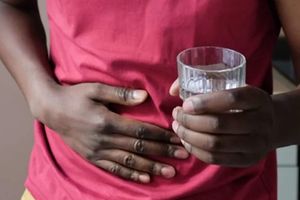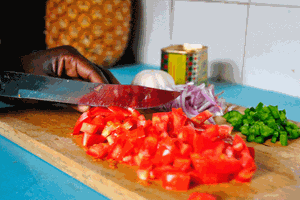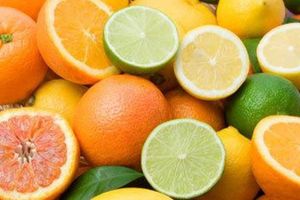
Complications from stomach ulcers are relatively uncommon but they can be serious and potentially life threatening.
Stomach ulcers, also known as gastric ulcers, are painful sores in the stomach lining.
Dr Betty Apica, a physician from Mulago National Referral Hospital, says the ulcers occur when the thick layer of mucus that protects the stomach from digestive juices is reduced or broken down.
She says stomach ulcers may be easily cured but can become severe if not properly treated. Dr Apica says when someone has ulcers, some foods can make the pain worse.
However, the physician, like other nutritionists, emphasises that there is no specific diet a person with ulcers needs to follow, arguing that people react differently to different foods.
Balanced diet
Dr Apica advises that a patient should only avoid the foods that trigger ulcers but like any other normal person, should maintain a balanced diet.
“The person can eat any food apart from the ones that maybe react to the ulcers, so each person actually knows what works for them and what doesn’t,” Dr Apica says.
“Even the patients themselves usually say, when I eat this, it makes my pain worse. Not necessarily the cause, but some foods make the pain worse,” she adds.
Mr Patrick Sentongo, a dietician at Impact Nutrition Company, reiterates that there is no specific diet for stomach ulcer patients.
However, he notes that different people have different triggers. He says although some people with stomach ulcers may react to acidic foods and fruits such as lemons, others may not, though they are major triggers of ulcers. He also says some people may react to cabbages, dried beans, vinegar and chocolate.
“In most cases, what really triggers ulcers are foods that have a lot of acid or oils or they are highly spiced,” Mr Sentongo says.
He explains that a nutritionist should understand each person according to their condition to get them what is right. Mr Sentongo recommends a bland diet (non-irritating) for stomach ulcer patients.
Risk foods
Foods that may trigger ulcer pain are; pepper, vinegar, chocolate, coffee, highly spiced food, alcohol, caffeine and citrus fruits such as lemons, and oranges.
Others are grapes, pineapple, fizzy drinks, highly carbonated drinks, alcohol, and highly processed foods, such as cookies, and pepper, among others.
Blend of diet
Mr Sentongo says a balanced diet for a person with stomach ulcers can include eggs, fresh beans, boiled meat, matooke, posho, refined grains, such as rice, white bread, boiled skinless chicken, bananas, and fish, among others.
He also emphasises that just like a normal person, one with ulcers should have at least three meals a day and should have dinner at least three hours before going to bed to allow quick digestion.
Mr Daniel Kamara, a nutritionist at Bwindi Community Hospital Kanungu, says apart from antibiotics and acid-blocking medications, eating common fermented foods that naturally contain probiotics and honey are helpful in the healing process.
Foods for healing
They are; kefir (fermented milk with a sour taste), miso (a paste from fermented soya bean), fermented porridge, and probiotic yoghurt, among others.
“The ingredient in the fermentation is important to increase the healing processes for ulcers,” Mr Kamara says.
The nutritionist explains that although milk is good for stomach ulcers, it should be skimmed/ boiled and sieved to remove the fat content on top, saying the latter can predispose one to worse ulcers.
Mr Kamara urges stomach ulcer patients to always eat other normal foods before eating acidic foods such as oranges. He says meal timing is very important for stomach ulcer patients and asks them to at least have three meals a day with a lot of fluids.
“If you are living with ulcers, you need to eat before you take things such as apples, grapes, and oranges to avoid the triggering effects. But also the behavior and lifestyle are very important,” he says.







